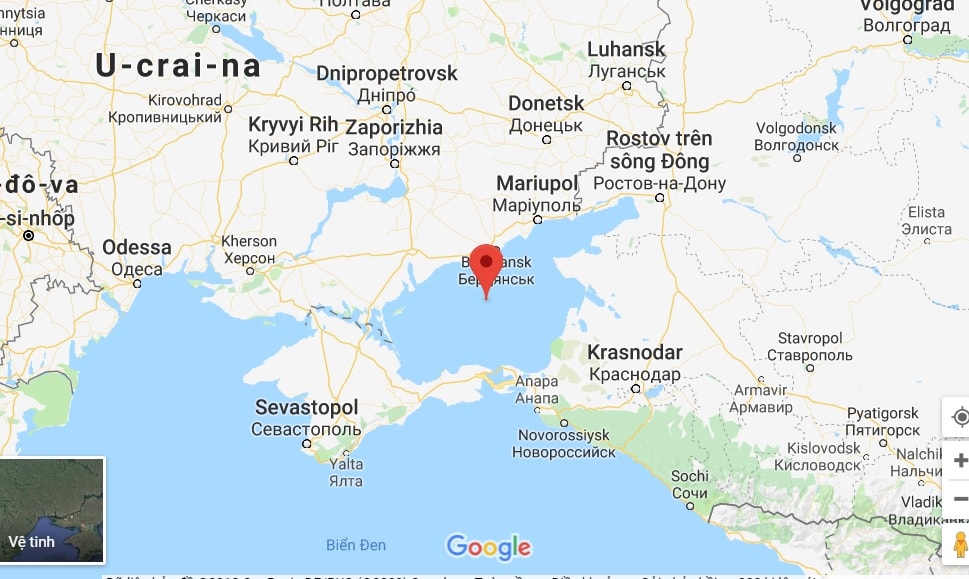Russian Foreign Ministry warns Kiev of consequences of amending Azov Sea agreement
Kiev's revision of the Azov Sea agreement will certainly have tangible consequences, said the Director of the Second Department for the Commonwealth of Independent States at the Foreign Ministry, Andrey Rudenko.
 |
| The Sea of Azov lies between Russia and Ukraine. Photo: Google maps |
Earlier, the head of the Ukrainian Foreign Ministry, Pavel Klimkin, said that Kiev intends to terminate the agreement with Russia on the status of the Azov Sea as an internal sea of the two countries.
"Any agreement has provisions that allow a signatory to withdraw from the agreement, so if they decide to do so, that's their business. But of course this decision will have certain consequences for Ukraine and Russia," Mr. Rudenko said.
He reminded that, according to the main provisions of the agreement, the Sea of Azov is historically the internal waters of the two countries. This means that the movement of ships is regulated by both national laws.
"In the agreement there is a clause that refers to the fact that foreign military vessels can pass through the straits in the Sea of Azov only with the consent of both sides. Without an agreement with Ukraine or Russia, no foreign vessel has the right to enter these waters," the diplomat explained.
Earlier, Ukrainian Foreign Minister Pavel Klimkin said that Kiev has a secret plan on the Azov Sea issue, but he refused to give specific measures, but stressed that they had been voted on.
"We are considering different options for the contract. Of course, we all understand that the Azov is not an inland sea, not a territorial sea. We need to come to this. But now there is international arbitration on the violation of Ukraine's rights in relation to the Black Sea and the Sea of Azov, in relation to the Kerch Strait and the illegal construction of the Crimean Bridge," Klimkin said at a press conference broadcast on the 112 Ukraine TV channel.
According to the head of the Ukrainian Foreign Ministry, the authorities have discussed all possible options with "friends and partners". He also added that success in the situation around the Azov Sea can only be achieved through actions "simultaneously in all areas".
In addition, Mr. Klimkin noted the need for Ukraine to "fundamentally increase its presence and power" in the Sea of Azov.
According to his data, Russian border guards currently delay ships' passage through the Kerch Strait by an average of 33 hours.


